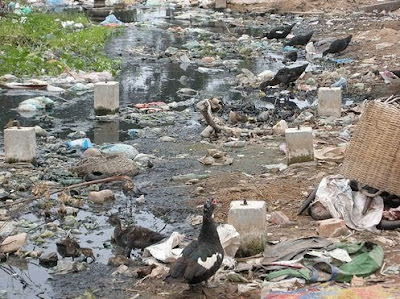Today is World Water Day. Organised each year by the United Nations, the theme for 2010 is ‘Clean Water for a Healthy World’, and it’s designed to highlight the growing problem of water contamination in countries grappling with water stress and fast-rising populations.
Events are taking place in North and South America, eastern and western Europe, Asia, Africa, Australia and New Zealand.
As the UN Water group points out on its website, 1,500 cubic kilometres of wastewater are produced every year worldwide. In developing countries, non-existent regulations and a lack of recycling resources result in 80 percent of all waste being discharged into rivers and lakes untreated. To make matters worse, population and industrial growth are adding new sources of pollution.
In a report released to coincide with World Water Day, the United Nations Environment Programme (UNEP) says sewage, industrial pollution, agricultural pesticides and animal waste are contaminating more than two billion tonnes of water daily.
The report, ‘Sick Water’, goes on to state that a lack of clean water kills 1.8 million children under five every year and that much of the waste comes from developing countries. The report not only recommends the construction of water recycling systems and water sewage treatment works, but also the saving of animal waste to use as fertilizer and the protection of wetlands, which act as natural waste processors.
“If the world is to... survive on a planet of six billion people heading to over nine billion by 2050,” said UNEP director Achim Steiner, “we need to get smarter about how we manage wastewater. Wastewater is quite literally killing people."
Read about the Dutch and World Water Day here.
Go to the World Water Day site.
Related Articles:
Guest Speaker: ‘We all need to rethink the way we deal with water’






No comments:
Post a Comment